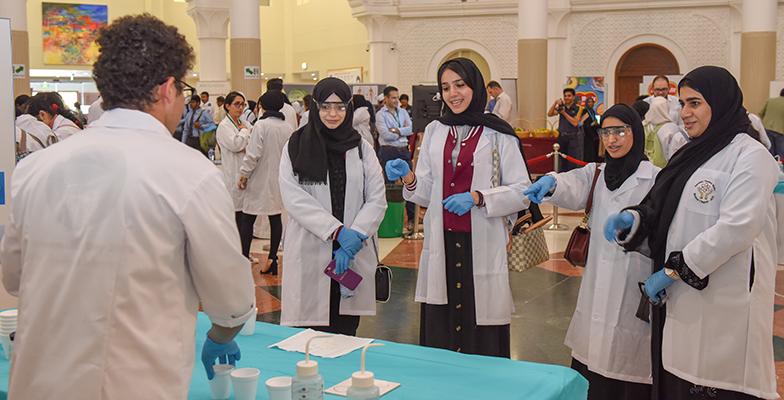Sustainability
- Our Vision
- Our Academics
- Our Priorities
- Our Resources

Sustainability is embedded throughout the curriculum at AUS. As of Academic Year 2023– 2024, 22 percent of undergraduate and graduate courses offered at AUS feature sustainability. These courses are offered across all disciplines, with 21 out of 22 academic departments at AUS (equivalent to a total of 95% of the departments) having at least one sustainability course offering.
Below, you will find a list of AUS’ majors and minors most closely related to sustainability:
The Bachelor of Science in Environmental Sciences and Sustainability integrates biology, chemistry and related courses, prepares students to study current environmental issues using critical thinking skills along with the scientific method to devise solutions to regional and global challenges. With tracks in environmental biology and ecosystems, and environmental chemistry and analysis, students can explore current world topics, such as sustainable development, global climate change, renewable energy sources, resource management, waste to energy, and others. In their senior year, students help solve a real-world problem during their internship, and they conduct an in-depth research project with a faculty mentor.
List of undergraduate minors:
Renewable energy is a multidisciplinary area that integrates different fields including electrical engineering and mechanical engineering. The minor provides students with an opportunity to acquire skills that would enhance their preparation for joining the related industry. The renewable energy minor will expose students to solar and wind energy sources and electrical energy conversion.
Environmental and water engineering is an interdisciplinary field that combines principles of chemistry and biology with engineering science to study the engineered approaches to protecting water and environment. Environmental and water engineering can include water supply and sewerage systems, water and wastewater treatment, waste management, water quality in coastal areas and environmental resources management. The main objective of an environmental and water engineer is to learn the skills and technologies needed to protect our water and environmental resources.
This minor draws on the resources and expertise of biology, chemistry and related courses and prepares students to study current environmental issues using critical thinking skills along with the scientific method to devise solutions to regional and global challenges.
By continuing, you will be taken to a website not affiliated with American University of Sharjah. Links to external sites are provided only for users' convenience and imply no endorsement of the site and/or its content. Note that the privacy policy and security settings of the linked site may differ from those of the AUS website.